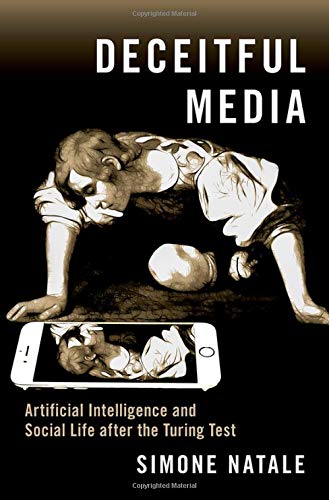

Most ebook files are in PDF format, so you can easily read them using various software such as Foxit Reader or directly on the Google Chrome browser.
Some ebook files are released by publishers in other formats such as .awz, .mobi, .epub, .fb2, etc. You may need to install specific software to read these formats on mobile/PC, such as Calibre.
Please read the tutorial at this link. https://ebooknice.com/page/post?id=faq
We offer FREE conversion to the popular formats you request; however, this may take some time. Therefore, right after payment, please email us, and we will try to provide the service as quickly as possible.
For some exceptional file formats or broken links (if any), please refrain from opening any disputes. Instead, email us first, and we will try to assist within a maximum of 6 hours.
EbookNice Team

Status:
Available4.4
20 reviewsArtificial intelligence (AI) is often discussed as something extraordinary, a dream—or a nightmare—that awakens metaphysical questions on human life. Yet far from a distant technology of the future, the true power of AI lies in its subtle revolution of ordinary life. From voice assistants like Siri to natural language processors, AI technologies use cultural biases and modern psychology to fit specific characteristics of how users perceive and navigate the external world, thereby projecting the illusion of intelligence. Integrating media studies, science and technology studies, and social psychology, Deceitful Media examines the rise of artificial intelligence throughout history and exposes the very human fallacies behind this technology. Focusing specifically on communicative AIs, Natale argues that what we call “AI” is not a form of intelligence but rather a reflection of the human user. Using the term “banal deception,” he reveals that deception forms the basis of all human-computer interactions rooted in AI technologies, as technologies like voice assistants utilize the dynamics of projection and stereotyping as a means for aligning with our existing habits and social conventions. By exploiting the human instinct to connect, AI reveals our collective vulnerabilities to deception, showing that what machines are primarily changing is not other technology but ourselves as humans.
Deceitful Media illustrates how AI has continued a tradition of technologies that mobilize our liability to deception and shows that only by better understanding our vulnerabilities to deception can we become more sophisticated consumers of interactive media.